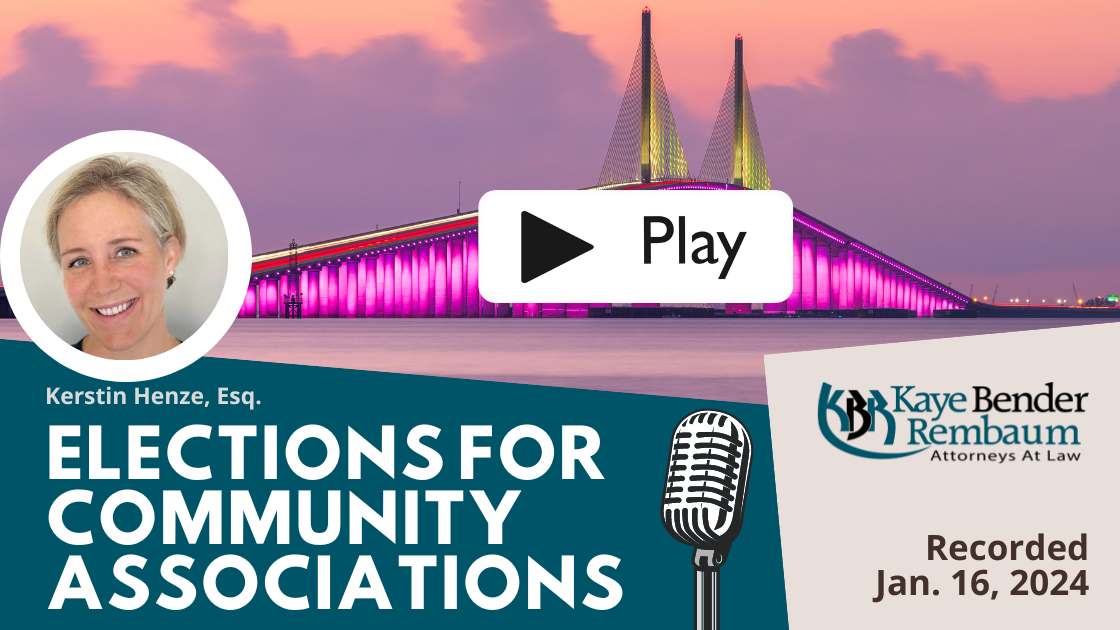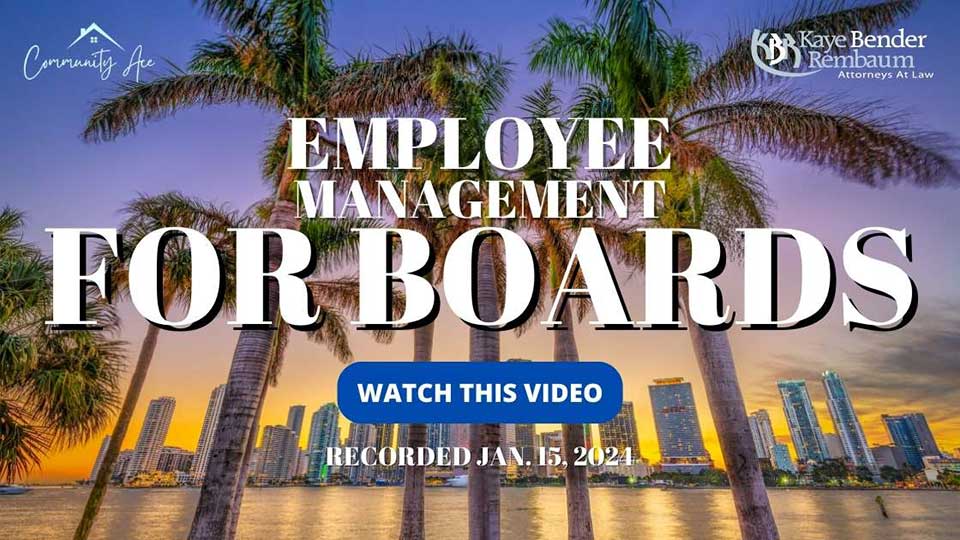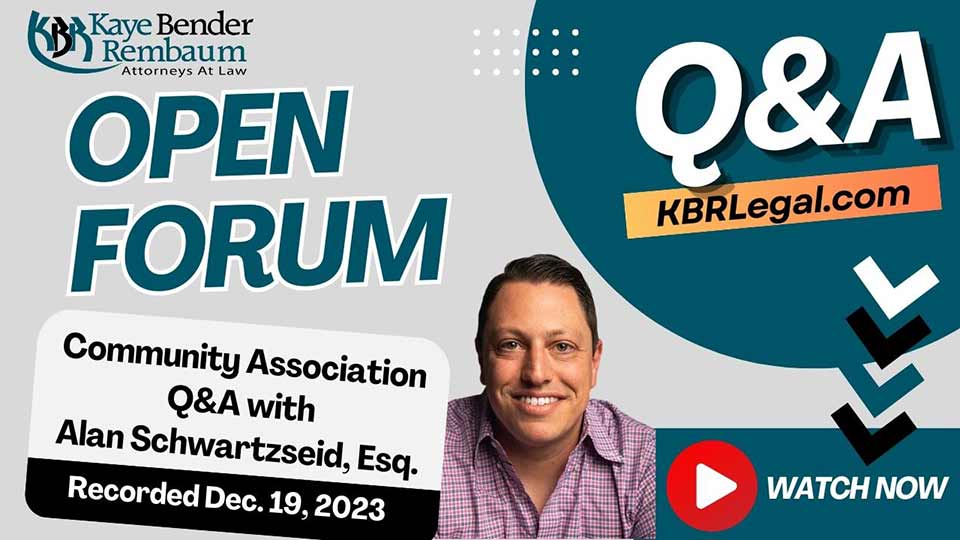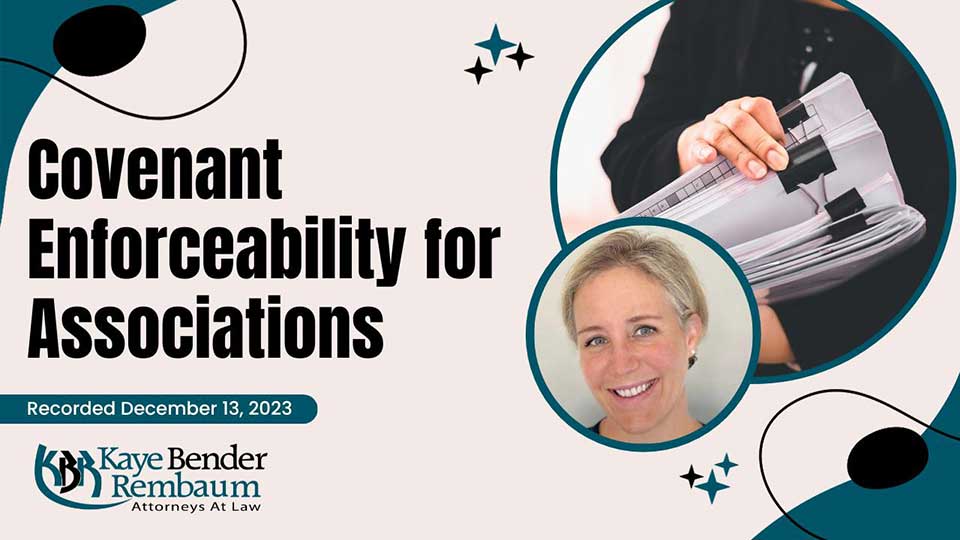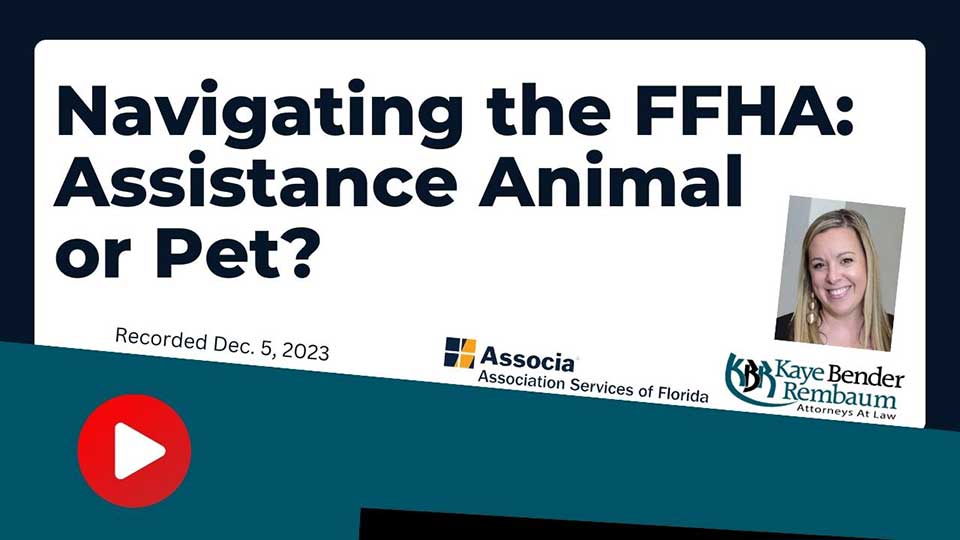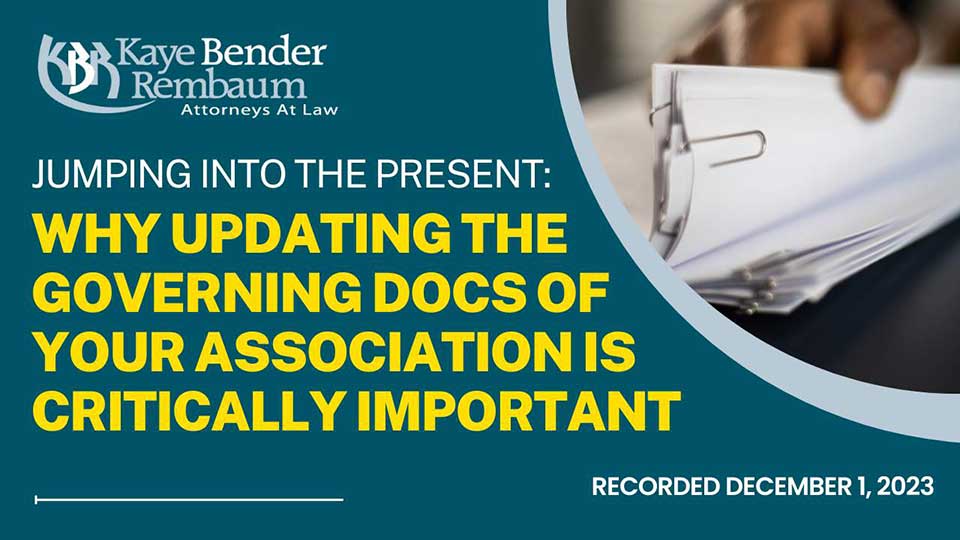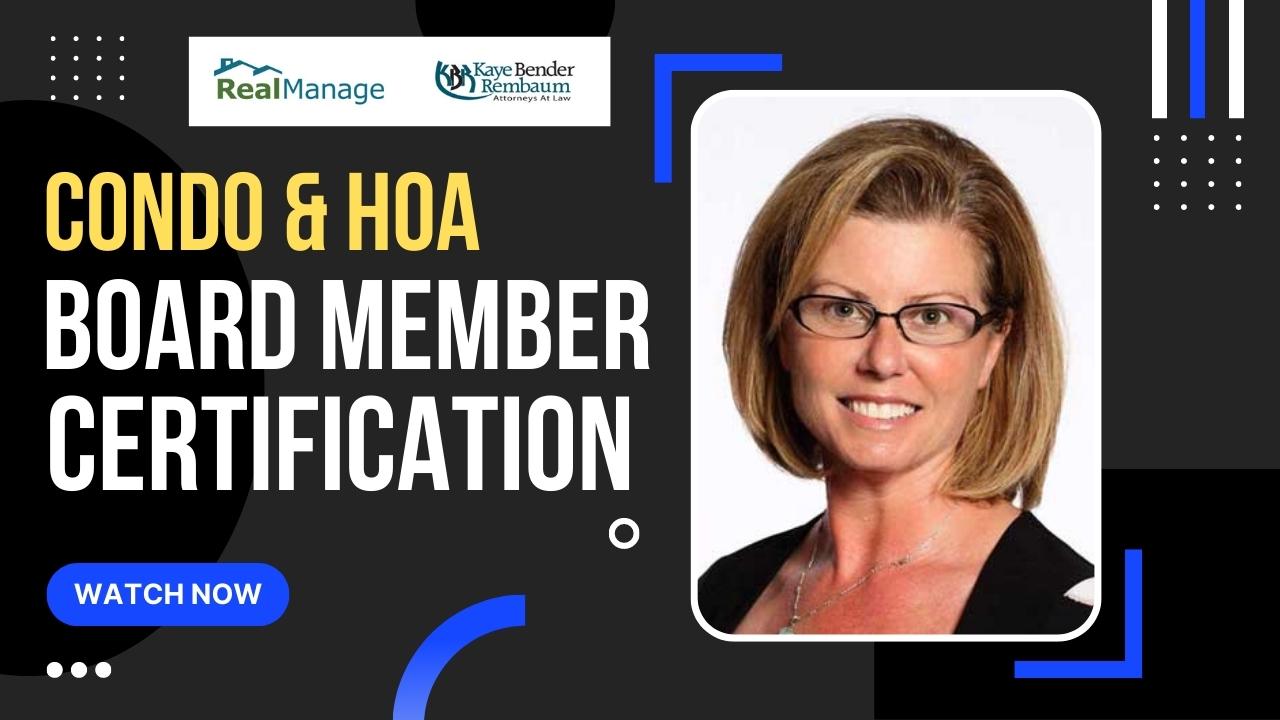Note before viewing: This event is informational purposes only, shouldn’t be considered as legal advice, and does not offer CE credit nor fulfill any requirements for board members.
Kerstin Henze, Esq. (KBR Tampa). Learn about election law and procedures for condominiums, cooperatives and homeowners’ associations, including eligibility requirements and terms of directors, best practices for remote meetings, vacancies between elections, and election disputes.

